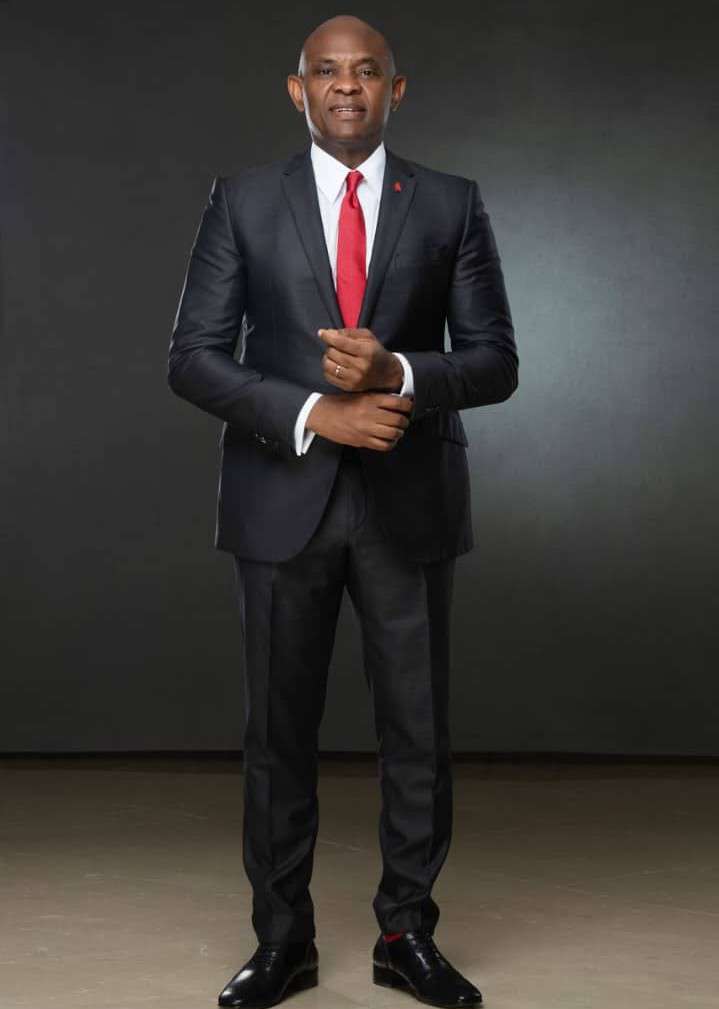Business
Nigerian born British undergraduate launches Climate Change NGO, Our Tomorrow

By OBINNA EZUGWU
Concerned about the threat of climate change to the stability and survival of Africa, Nigerian born British undergraduate, Prince Emeka Obasi junior, on Saturday, formally launched a non governmental organisation, ‘Our Tomorrow,’ with a view to rallying youths of the continent and other stakeholders to rise up to challenge of confronting threats.
Mr. Obasi who unveiled his plans with ‘Our Tomorrow’ in an open letter to African youths, titled, “Wake Up and Help Save Our Tomorrow,” said the organisation has three broad objectives of waking African youths up to the reality of the existential threat climate change poses to their future; sensitising African leaders, both at the government, corporate and non-governmental levels, to heed the clarion call for sustained action against climate change, and mobilizing resources, both material and human, to campaign and create sustained awareness of Africans, especially the youths, on the need to be actively involved in the battle to save the environment for their future and for future generations.
While highlighting the enormous threat climate change poses to the continued survival of Africa, Obasi noted, however, that he is confident that the youths of the continent have all it takes to avert the looming climate crisis, hence his decision to take up the responsibility of mobilizing action in this regard.
“Already, Africa is confronted by the twin challenge of insecurity and poverty, but climate change now threatens the continent’s very existence,” he said. “But I am also optimistic about the future of our continent. I look at the numbers; the millions of young Africans doing exploits globally, and particularly at the fact that a vast majority of the population of Africa are young people, and my heart is gladdened.
“Yes, the challenge of climate change is enormous, but I’m confident that we have what it takes as youths of Africa to galvanize action towards averting the climate crisis that now stare us in the face, which is why I am writing to you today.”
Describing his quest as a calling, Obasi noted that though he spent the first decade and a half of his life in Lagos, Nigeria, a state whose survival is threatened by rising sea levels, before moving the United Kingdom, he finds it strange that throughout his days in the Nigeria’s commercial city, he never became aware of the threat of climate. This, he attributed to lack of sufficient awareness about the issue of climate on the continent.
“Like many of you, I was born at the turn of the 21st Century. Indeed, I was born 21 years ago, at a very auspicious time in the history of mankind. It was a time when an old age had just passed away, giving birth to the new millennium. I was born at exactly 1pm on the first day of the first month of the first year of the new millennium, precisely on January 1st, 2001, at 1pm,” he said.
“My mother keeps telling me that I’m a special child; that maybe God wanted me to come on such symbolic day in order to make my life story more engaging.
“I spent my early childhood in Lagos, Nigeria, Africa’s biggest city. It’s where I grew up and where I had my early education. I only travelled out during the holidays or during school excursion trips.
“Looking back on those years, I find it remarkable that despite maintaining great interest in current affairs, especially given the fact that my father is a Journalist, I never became conscious of the environmental crisis which had begun to endanger Lagos until I came to England for my college education in 2017. It was while here in England that I became increasingly aware of the problems of the environment and the challenges they pose, particularly to African countries.
“But I find it inexcusable, and almost unforgivable that despite living my first decade and a half in Lagos; a city so threatened by climate change that scientists have projected that it may become uninhabitable by the end of this century as sea levels rise, I did not become conscious of climate change and indeed the environment. What it underlines is the acute lack of deliberate policies to create awareness among the younger generation of Africans.”
Obasi noted that like Lagos, many cities in Africa, and indeed the continent in general, is under serious threat, highlighting already manifesting examples such as draught which is threatening food security and fueling security crisis.
“Lagos is a coastal city with a population of 24 million and is predicted to see 90cm of sea level rise by 2100 as a result of global warming. According to certain scientific projections, Lagos could become uninhabitable by the end of this century as sea levels rise,” Obasi said.
“It is, however, heartwarming that the state is already taking action to ensure that this potential disaster is averted. Not long ago, the the Lagos State government unveiled a five-year Climate Action Plan (CAP) 2020-2025. The goal, as stated by Mr. Babajide Sanwo-Olu, governor of the state, is to achieve an emission-neutral city by 2050.
“But the case of Lagos state is not unique. It typifies the acute environmental problems facing many parts of Nigeria. There is increasing desertification in the North, which has had very huge impact on security in the country; erosion in the East; oil spillage in the South/South, among others. The scenario is similar in other parts of Africa. Global warming is expected to melt Africa’s remaining glaciers in the next few decades, and the reduction in water essential to agricultural production will create food insecurity, poverty, and population displacement.
“Agriculture, which remains heavily dependent on rainfall, is critical to Africa’s economic growth, thus, climate change could potentially destabilize local markets, increase food insecurity, limit economic growth, escalate insecurity and increase risk for agriculture sector investors. Without doubt, for Africa to survive, sustained action must be taken beginning from today.
“In this, our generation has a very critical role to play, because as we say in Nigeria, the youths are the leaders of tomorrow. If we analyse that saying well, it makes a lot of sense. Of course, the future belongs to the younger generation – it is their inheritance – but as an old African saying has it, the young shall grow.
“The question I ask is, when the young must have grown, then what happens? The expectation is that when the young grow they will inherit the Earth. My worry is in what shape that Earth will be.
“So, it is important that young people become involved in the global effort to ensure that the Earth is in fit and proper condition to make a worthwhile inheritance. Therefore, the effort to improve the environment should be championed by the youths because the world of tomorrow belongs to us.
“Whereas it is true that today belongs to our fathers and mothers, tomorrow belongs to the children; to us, and what we do today will surely determine the fate of our tomorrow and the fate of those coming after us. Therefore, I have resolved to contribute my own quota towards the global push to create a more sustainable, safer, cleaner and healthier environment for the future by setting up an NGO, ‘Our Tomorrow.’”
He noted that the NGO “will become an active player in the climate change ecosystem and I am committed to getting the youths of Africa to commit to this noble endeavour.”
According to him, “Our tomorrow has a three point agenda: To wake African youths up to the reality of the existential threat climate change poses to their future;
To sensitize African leaders, both at the government, corporate and non-governmental levels, to heed the clarion call for sustained action against climate change;
To mobilize resources, both material and human, to campaign and create sustained awareness of Africans, especially the youths, on the need to be actively involved in the battle to save the environment for their future and for future generations.”
Obasi described the struggle against climate change as one of a lifetime, noting that “It is a call which I feel honoured to answer.”
He said, “As the great Marxian philosopher, Frantz Fanon, once wrote: Every generation must, out of relative obscurity, discover its true mission and either fulfil or betray it. I am proud to state that as an African youth, I have found my mission and by the grace of God, I will not betray it.
“My target is to mobilise the teeming populace of the youths in Africa to achieve a critical mass of climate change advocates, whose voices will resonate loudly and clearly and catalyse positive action. We will use the awesome power of social media to create this unstoppable army and empower their voices in every country in Africa.
“Indeed, the prospects are exciting, I invite all African youths to this adventure.”










